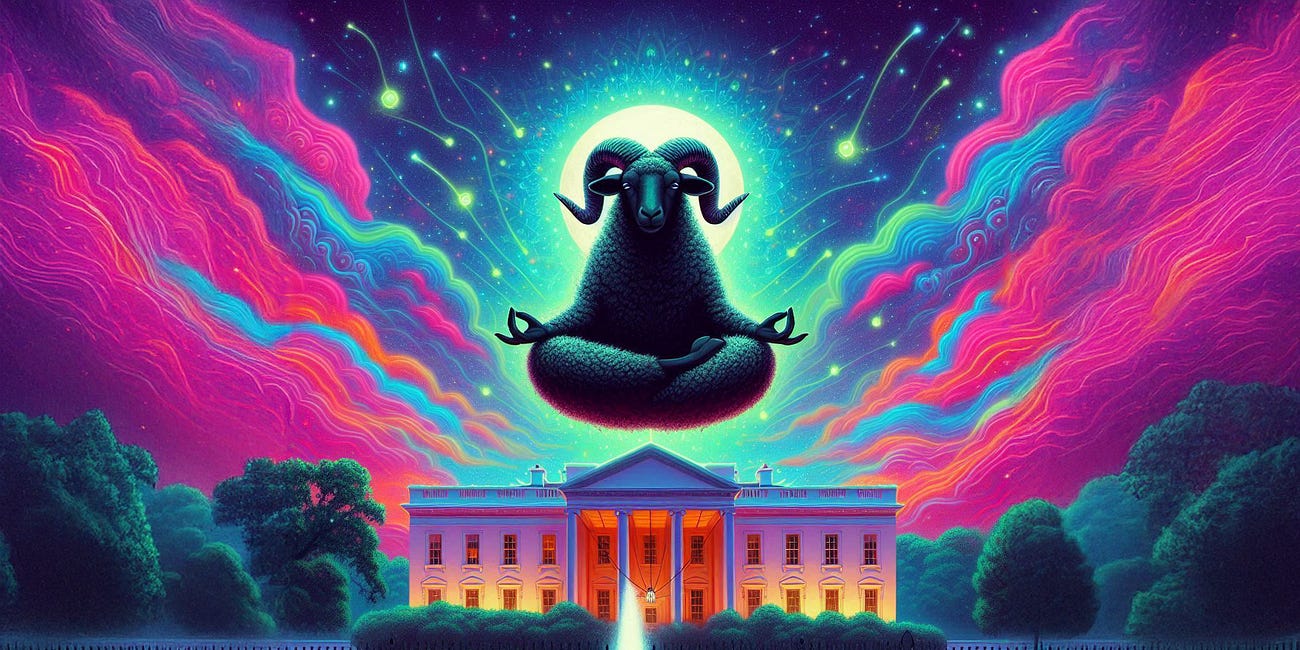Dear Fellow Environmentalists: Stop Talking About Climate Change
If we want a thriving Earth, we should stop trying to “save the planet.”
I’ve long been an advocate for the Earth. As a door canvasser for Greenpeace, I spoke to countless people on front porches about sustainable forestry, the melting Arctic, and the impacts of genetically modified foods. I’ve marched against Monsanto and voted for the Green Party more times than I can count—and I recently published a children’s book to help the planet’s smallest humans connect mindfully and meaningfully with nature.
But in 2019, something began to shift. I started diverging from other eco-activists, rethinking how we were being taught to “save the planet.”
That September, millions of people around the world flooded major cities for a global climate strike. The turnout was extraordinary, but I sensed an underlying hollowness. It felt like watching a school of fish move in unison, guided by an invisible hand–only for the energy to fade as quickly as it came.
There’s beauty in the way fish and other lifeforms move in tandem as if guided by a higher power. But the march, to my surprise, left me wary. It felt less like an expression of a conscious collective and more like a reactive response to the media-driven frenzy demanding we “fight climate change.” People were quick to vocalize their support for the cause on social media when before there was seemingly little concern or conversation from those same people. It therefore didn’t feel rooted in deep conviction or embodied principles.
I started to read climate news from a slight distance and slowly got the sense that all the shouting about “saving the planet” by “fighting climate change” was narrow-lensed. There was little meaningful dialogue about how we might protect our forests, clean our rivers, or restore our soils. Yes, we could stop buying plastic bags and start using bamboo straws, but I wasn’t convinced that these modifications were the answer to our problems. While I’d love to see less plastic in our oceans, the pat-on-the-back that these simplistic actions offer us distracts from larger issues, like overconsumption and unsustainable waste management systems (not to mention that cotton tote bags aren’t great for the environment, either).
Instead of thoughtful commentary, an endless loop of talking points about carbon emissions, global targets, and a catastrophic future filled the news. Rather than empower us to make meaningful change, such as by rewilding local parks, planting urban gardens, and teaching children about nature, the narrative demanded that somebody else (corporations and politicians) save us from something that’s well above our heads (pun intended).
Climate science is over most of our heads because it’s complex, involving things like volcanic eruptions, ocean currents, changes in land cover, and greenhouse gas emissions. It’s a result of both natural factors and human activity, yet we’re divided about its urgency and solutions. In typical modern human fashion, we argue endlessly about the topic, predictably polarized.
Clearly climate science itself is not hollow. However, how we talk about the state of our environment is. Our collective attention is hyper-focused on a single, simplistic narrative—a story that frames climate change as our most pressing environmental crisis. It’s a narrative that has us trapped in division and confusion.
Like with other controversial social topics, we’re quick to label those who see things differently as either “climate alarmists” or “climate deniers.” Broadening our lens would better serve us, granting the topic the nuance it deserves.
Rather than getting trapped in divisive rhetoric and debate, we might come closer to common ground by looking beyond climate change and connecting with others about the environmental dangers to the things our eyes can see—our forests, rivers, oceans, and fields, for example. The Earth we stand on is our common ground and any clear-minded individual would want to see it thrive. Unfortunately, polarizing narratives have led us to believe we hold vastly different views about whether or not nature is worth protecting.
While there’s certainly room for debate about carbon emissions, focusing on the things we can influence directly would bring the average human closer to tangible solutions. By shifting our focus in this way, we discover nature-healing initiatives that will also positively impact climate. For instance, by reforesting degraded land, we improve biodiversity in those areas while also reducing atmospheric carbon. Similarly, practices like no-till farming, which avoids disturbing the soil, and cover cropping, a practice of planting crops to improve soil health and nurture the land while also storing carbon.
By addressing environmental issues like these ones, we can reduce the overwhelm that’s often triggered by the big, scary climate problem. It’s a step towards reclaiming our personal sovereignty, change-making potential, and sense of purpose.
Tending to what I could literally and metaphorically grasp freed me of the doom-and-gloom climate change narrative. Because it was indeed weighing on me: For years, I regularly declared that I couldn’t bring children into this world because of how dire things looked. (Update: I’m a mother of three now). And as I started to reclaim sovereignty over my own impact on the world, I became more aware of governmental overreach—of controlling policies touted as the only solution to our climate woes.
The strife between farmers and the Dutch government in recent years was one of the most obvious cases of overreach that caught my attention. In 2022, the government in the Netherlands announced plans to reduce nitrogen and ammonia emissions by 50 percent by 2030. Leaked estimates from the finance ministry projected that roughly 11,200 livestock farms would be forced to close as a result. The Dutch government didn’t rule out the possibility of having to buy out farms by force if necessary to achieve their stated goals.
Dire narratives about climate change and its impact on our future leave everyday citizens more willing to give up personal power in the name of “saving the planet.” The Earth is indeed an interconnected whole, and it’s understandable to want solutions that everyone’s signed up for. But at what cost? If there’s no pushback, governments can force through agendas that negatively impact individuals–and who truly benefits from policies that erode personal sovereignty “for the greater good”? As it’s said: “The road to hell is paved with good intentions.”
The protests in response to the Netherlands’ policy brought together people from seemingly opposite sides of the ideological spectrum. On one hand, you had conventional farmers—the ones most impacted—who were now fighting for their livelihoods. In support of them, you also had people like Vandana Shiva, an environmental activist who advocates for organic, regenerative farming methods. While Shiva’s views about the best way to farm would be in conflict with the majority of these conventional farmers, they stood on the common ground of resisting governmental overreach that would have harmed both types of farms.
I largely align with Shiva’s views about regenerative and organic farming methods versus conventional ones. I also believe that attempting to reduce nitrogen and ammonia emissions is, generally speaking, a good thing. At the same time—like Shiva—I’ve discovered new alliances with people who hold opposing opinions, brought together by a shared desire to maintain personal sovereignty and resist overreach.
Finding common ground beyond ideological lines is one of a black sheep’s most important strengths–we’re allergic to dogma and rigid belief systems. We’re willing to acknowledge that there’s probably something to learn from the other side, that we share common ground somewhere, and that most issues are more complex than we’re sold.
This willingness to engage with differing perspectives is crucial when it comes to improving our planet. We—along with politicians and business leaders—need to be willing to integrate ideas from multiple perspectives and areas of expertise. For instance, while the political left often positions its members as the sole environmental stewards, interesting and innovative solutions can also come from the political right and libertarians. One example is the Property and Environment Research Center (PERC), which advocates for market-based solutions to environmental problems. An example of such a solution is Paso Pacifico, a non-governmental organization in Nicaragua that employs rangers to protect sea turtles from poachers. By creating jobs and supporting ecotourism initiatives, it provides both economic and environmental benefits to the communities it serves.
At the same time as we explore such innovative solutions, we need to question the assumptions we’ve made about the solutions already handed down. This became particularly clear to me after watching Planet of the Humans, a documentary by Jeff Gibbs and Michael Moore. Take solar power, for instance, often considered the Holy Grail of renewable energy. Manufacturing the panels requires significant energy—much of it derived from fossil fuels—and uses rare earth minerals. The mining of these minerals leads to deforestation, water pollution, and toxic byproducts. In other words, solar is not our savior. Our narrow focus on gas emissions has left us largely unquestioning of the unintended side effects of the green movement.
The documentary had its shortcomings. It didn’t offer much hope or inspiration for a way forward; rather, it fueled the story of despair. Yes, there are problems with both fossil fuels and renewables, but humans are remarkably innovative. Technology is constantly evolving and we can’t know what’s just around the corner. The point is that we should question everything sold to us as the ultimate solution. Even when “our side” has firmly taken a stance, we can—and should—continue to think critically and ask tough questions. As our knowledge changes, so should we.
But beyond the debate over policies and big solutions, a deeper truth was left unspoken: that real, lasting change often begins not with loud, external initiatives but with quiet, local action and inner revolution.
In terms of local action, we can get curious about what’s happening in the environment closest to us and make positive changes there: Are there wildflowers you could plant in your garden for pollinators? Is there a spot in your backyard to grow tomatoes or berries or kale? Could you start an initiative to clean up a park, forest, or waterway near to you?
These local acts might seem like naive solutions to our environmental problems, but if we’re not willing to nurture the environment in our own backyards, why should somebody else? In a world full of keyboard activism, it’s radical to get involved in tangible, close-to-home initiatives; it takes courage and conviction to get our hands dirty.
But, we can get even more local than our own backyards: we can tend to the landscape inside ourselves. By this I mean personal growth and development—honest self-inquiry and a willingness to change from within. By tending to our personal evolution, we lay the foundation for more engaged, conscious actions in the world around us.
In a world wired to keep us distracted, enraged, and at war with one another, committing to self-growth goes against the grain. When we tend to our inner landscape and do the work we discover needs doing there, we become more grounded and less likely to act out of anger, fear, or division. We become the change we want to see.
What does the inner work look like? It includes cultivating self-awareness, examining what triggers us, learning to regulate our emotions, understanding our impulses and addictions, and examining our unconscious beliefs. It’s about developing compassion, learning how to communicate more effectively, and strengthening our commitment to our principles.
When we tend our “inner soil,” we become more mindful of our actions and how they impact others and the world around us. Mindfulness often leads to: a reduction of wasteful purchasing; an increased capacity for constructive dialogue about the environment; greater support for ethical businesses; and the pursuit of new careers and hobbies that promote the health and well-being of the planet. From reactionary participants in a divided world, we become people who act with greater intention, wisdom, purpose, and care. We become quiet but powerful revolutionaries, casting positive waves of change in every interaction we have with the world around us.
So rather than wait for governments and corporations to save us, we can reclaim our power to craft the Earth we wish to live in—starting by transforming the world within. From there, we can tend to the local Earth outside of ourselves, making immediate changes to the health of the planet in whatever ways we feel called. By cutting out the noise and getting to work where we feel called to, we bypass the ideological battleground and make a tangible difference—whether that’s through reducing waste, building a rooftop garden, or cleaning up our local park. By nurturing the seeds of self-awareness, we’re less likely to preach about how others should act and more likely to model right action ourselves.
None of this is to say there shouldn’t be large—scale protests or that we shouldn’t raise our voices. Protests raise awareness and our anger has a lot to teach us. However, in the spirit of Robert Frost, I found that the eco-activist road I was on was diverging, and there was nothing I could do but take the one less traveled. Nothing felt more urgent than making the choice to nurture the lands within and immediate to me, giving up the mainstream “climate fight”.
A seed, when it’s ready for the next phase of its growth, pushes against its shell to break through, expanding into sprout, plant, and then blossom. This is why we have to start with what’s close to home; it mirrors the natural direction of growth.
Yes, the climate needs our attention, and its urgency is understood. But, if we attempt to force solutions with top-down, restrictive policies without addressing what’s present in our hearts, minds, and local communities, we risk treating symptoms rather than causes.
If we want a thriving Earth, we should stop trying to “save the planet” in the limited ways we’ve been taught to—by repeating talking points, placing too much faith in governments, and relying on simplistic solutions. Lasting change begins with rooted principles and practices, not with force or divisive narratives. Yes, this type of transformation can take time, but when we enact change on an individual level, it positively impacts and inspires the larger systems around us. To effectively address our environmental concerns—including that of the climate—we need solutions that have deep roots. That’s true sustainability.














I love this essay Gillian! It renewed my zest for caring about the environment. I was once a big (and insufferable) environmentalist, but eventually developed a distaste for the whole subject after it started to get taken over more by extreme activists.
I think your approach is so wise and much more compatible with maintaining a free society of empowered individuals. It's really a dignifying philosophy of environmentalism.
Thank you for publishing it with us!!
Gillian Florence Sanger I am just blown away by the sheer grace, brilliance and love of the Earth and the people who live on it you wrote this article with! This is one of the most important articles of the 21st Century! Yet another prolific work worthy of the Pulitzer Prize by the Black Sheep! Jake’s seminal work Redefining Racism was like a bombshell dropped from an airplane. Now we have this article thoughtful and planted and nurtured with love growing into a beautiful blossoming flower! I too am a big time environmentalist and supporter of animal rights. But I must agree with every single word of this article! The modern environmentalist and animal rights movements have been hijacked by woke radicals and people with other agendas. Like the Global Climate Strike you mentioned it felt more like people virtue signaling in reaction to something than actually having a raising of consciousness around Climate Change. The Scientific establishment in my opinion has been lying to us for years about the science behind Climate Change. Don’t get me wrong, it’s very much real and a problem that will only get gradually worse the longer we wait to take action. But it’s not going to be as bad or as catastrophic as they claim. Nor is the hysteria of groups like Just Stop Oil and Extinction Rebellion going to help anyone. Saying stuff like “I won’t have children to save the planet.” or “We won’t have a planet in ten years.” Is reckless, nonsensical fear mongering that helps no one and is blatantly factually inaccurate. It is also the case that the modern environmental movement has elements that are anti-human. You also rightly point out that oppressive top down solutions by the government and corporations treat the symptoms not the disease itself. It’s up to us the people to take measures to do that! The solutions you provide of actions we can all take to do so are all amazing and so simple! Planet of the Humans while flawed, does a good job showing how our current solutions to Climate Change aren’t all they’ve been hyped up to be. Another critique I have of the modern environmentalist movement would be its unrealistic world view. We have to gradually transition off fossil fuels, we can’t just get rid of them overnight. We need to find realistic and pragmatic solutions like you suggested to fighting Climate Change and caring for Mother Earth. Pragmatic, bottom up solutions to Climate Change are the way to go! Also the movement itself desperately needs reform and rethink everything about how they go about fighting for their cause. I also agree with you liberals and progressives need to be open to building bridges with conservatives and libertarians and work together and bounce ideas off each other on finding solutions to protecting the environment! You’re definitely right that we need to stop with all the simplistic narratives about a very complex topic. Simplistic, grand over-arching policies by the government wouldn’t turn the trick either. We need more nuanced, thoughtful discussions as a society here in the West about how to address Climate Change. The last thing I will say is activists need to STOP tying environmentalism to things like racial justice, women’s rights, gay rights, colonialism, etc. it has nothing to do with. Muddying the waters of environmental activism with all this other irrelevant, identity politics nonsense is unhelpful to the cause and to our planet. There is no such thing as for example as “Environmental Racism” that’s just made up. Stop it! Also, the movement needs to distance itself from grifters like Greta Thunberg.